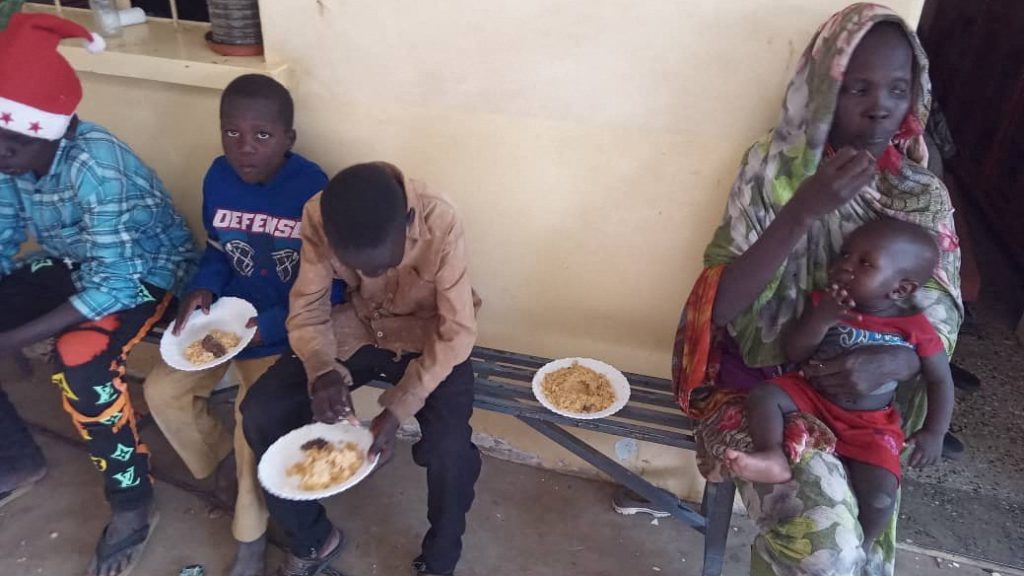As fighting continues to rage in Sudan in the Horn of Africa, Catholic bishops in neighboring South Sudan accused warring factions of committing "horrendous war crimes" while the people are suffering "a humanitarian disaster."
In a June 29 pastoral message, the prelates noted that "the fabric of Sudanese society has been torn apart, with people shocked, traumatized, and disbelieving about the level of violence and hatred."
Yet, there appears to be no end in sight of the escalating conflict between the Sudanese Armed Forces, or SAF, and the Rapid Support Forces, or RSF.
War broke out in Sudan April 15, 2023, between two rival armed factions of the Sudanese military government.
Almost 15,000 people have been killed to date, and almost 9 million have been displaced, giving rise to the worst displacement crisis in the world. Nearly 2 million displaced Sudanese have fled to unstable areas in Chad, Ethiopia and South Sudan, overrunning refugee camps. The U.N. continues to plead for more support as more than 25 million people need humanitarian assistance and deteriorating food security risks triggering the "world's largest hunger crisis."
South Sudan bishops said economic considerations are making it more difficult for peace to return to the troubled country.
"This is not simply a war between two generals, as the military has inextricably embedded itself in the economic life of the country. Both SAF and RSF have networks of wealthy elite Sudanese and international individuals and cartels who benefit from their control of various economic sectors and are linked to external sponsors who continue to provide them with increasingly sophisticated weapons, such as drones," the bishops said.
"Our leaders are not ready for peace," said Bishop Yunan Tombe Trille Kuku Andali of El Obeid, who read the bishops' statement during a press conference. "Fighting and conflict have the upper hand as we hear them say unless we defeat the other group, we won't put down weapons," he said.
The bishop said the time had come for the warring factions "to think of the people and nation. The more the fighting, the more people get scattered and the more hatred grows among various Sudanese ethnic groups."
"Kneel down to pray," he continued, "and hear the voice of God and the voice of the people, the children, the women that cry for peace, and also the blood that cries on the ground of very innocent people who died because of crossfire. Go back to dialogue as children of one mother and one father."
Bishops in South Sudan have joined other global agencies in calls for humanitarian assistance to Sudan, even as they recognize the fact that the wars in Ukraine and Gaza have meant shrinking international humanitarian assistance to their region.
Other faith-based nongovernmental organizations also urging action on Sudan as the humanitarian situation worsens are Caritas Internationalis, the World Council of Churches and Jesuit Refugee Service.
The NGOs sent the United Nations' Human Rights Council, which convened June 18 in Geneva, a message calling on all parties "to agree on an immediate and durable ceasefire and to engage in meaningful dialogue to establish lasting peace and work towards a sustainable solution to address the underlying causes of the conflict."
They deplored the repeated sexual violence targeting women and children and noted the displacement of over 9 million people had reached "untenable levels."
They warned that without an immediate injection of funds,"the capacity of neighboring countries to respond will soon reach a breaking point."
As fighting persists with its attendant humanitarian consequences, Pope Francis has been quite vocal in his calls for a cessation of violence.
Bishop Eduardo Hiiboro Kussala of Tombura-Yambio told OSV News that the influx of refugees to South Sudan from Sudan was stretching humanitarian aid to the limits, and expressed frustration at the dearth of funding.
"The church in Sudan appeals to us to help stop the war, provide humanitarian assistance, do advocacy work for peace, prepare for 'after the war' in terms of reconciliation, reconstruction, and trauma healing and above all, pray for them," said the bishop.

